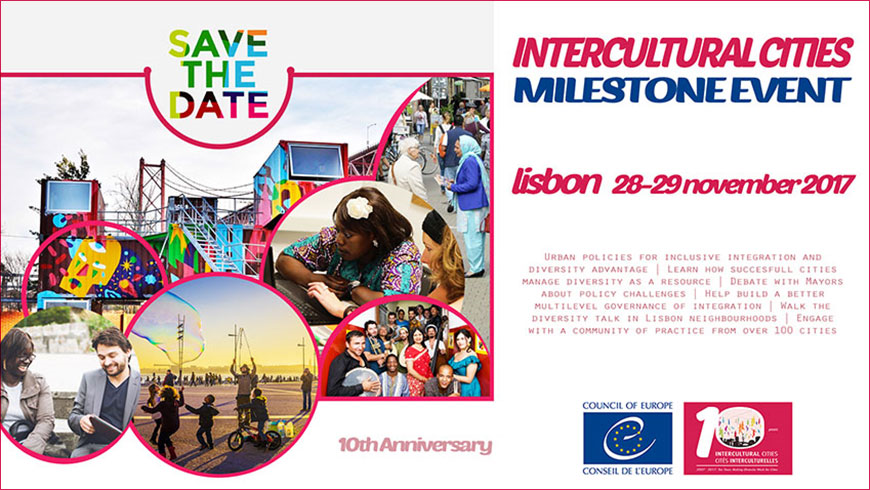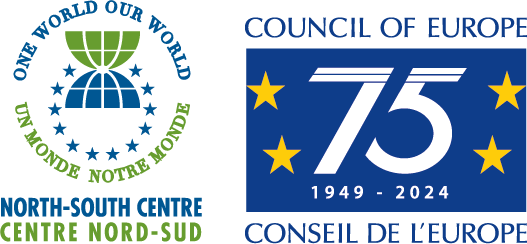From Oslo (Norway) to Limassol (Cyprus), from Paris (France) to Rijeka (Croatia), from Ballarat (Australia) to Montreal (Canada), from Mexico City (Mexico) to Hamamatsu (Japan), passing by Tanger (Morocco) and Haifa (Israel): 10 Years (2007-2017) of Intercultural Cities project, a Council of Europe platform for a wide range of cities (121 in 5 continents) which are managing diversity as an asset, rather than as a threat.
Cities in Europe and in the world can gain immensely through cultural diversity with a variety of skills and creativity, while adopting policies and practices that facilitate intercultural interaction and inclusion.
The Council of Europe celebrates this real success-story in Lisbon (28-29 November) with a Milestone Event, organised in co-operation with the city of Lisbon and Portuguese authorities: Urban policies for inclusive migrant integration and diversity advantage. The event (Municipal Assembly, Forum Lisboa, Avenida de Roma, 14) is an opportunity to take stock of achievements and develop new perspectives, approaches and partnerships in order to expand the intercultural integration policy model and better address the challenges and the needs of authorities and citizens. It will be opened by Deputy Secretary General Gabriella Battaini-Dragoni, Mayor of Lisbon Fernando Medina and the Minister of Home Affairs of Portugal, Eduardo Cabrita.
Amongst other participants to take part in the event, David Stanton, Minister of State for Justice, Ireland and Marina del Corral, State Secretary for Migration, Spain.
Moreover, one of the crucial challenges Intercultural Cities need to address in the coming years, is the development of an effective framework for dialogue and co-action between local, regional, national and European public officials, in order to ensure that migrant inclusion policies at all levels reinforce each other. This will be the main goal of a Policy Lab for inclusive integration, for Mayors and national representatives.
Background
INTERCULTURAL CITIES (ICC) is a capacity-building and policy development programme implemented by the Council of Europe to support local authorities across Europe and beyond to design inclusive integration policies and strategies built on the application of a diversity management model called Intercultural Integration. Based on the notion of “diversity advantage”, these strategies are founded on the assumption that diversity can be an asset for communities if managed in a positive and competent way; they mobilise leaders, policy officials, professionals, businesses and civil society towards re-shaping city policies and services to make them more effective and engage citizens in building an understanding of their society’s diversity as a competitive advantage.
The Intercultural Cities’ programme offers a comprehensive methodology for city leaders and a range of analytical and assessment tools, including the Intercultural Cities Index, that municipalities can use to evaluate the success of their integration strategies. The ICC programme has grown exponentially in the past two years and has a current membership of 121 cities, taking in five continents. There are also active national networks in Italy, Jordan, Norway, Morocco, Portugal, Spain and Ukraine. Ten years after its launch, the ICC programme is working at developing new perspectives, approaches and partnerships in order to shape inclusive societies in the decade to come.
Press contact
Giuseppe Zaffuto
Spokesperson/Press officer
Tel. +33 3 90 21 56 04, Mobile +33 6 86 32 10 24




